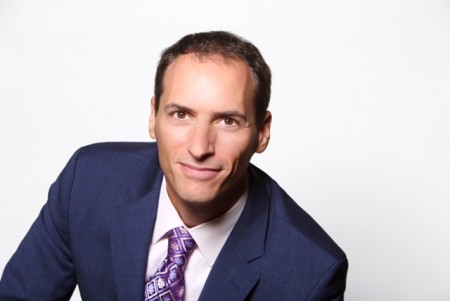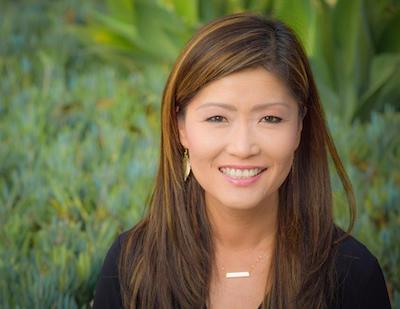Law firm leadership and facilitating meaningful conversations about diversity and inclusion

Ari Kaplan. Photo by Lauren Hillary.
Ari Kaplan recently spoke with Esther Cho, a shareholder and the chair of the executive committee at Keesal, Young & Logan, who also serves on the firm's diversity and inclusion committee.
Ari Kaplan: Tell us about your background and your practice at Keesal, Young & Logan.
Esther Cho: I joined Keesal, Young & Logan when I was a law clerk in law school, and I’ve been with the firm for more than 20 years. My tenure is actually not that unique, as about 80% of our professionals have been with the firm for their entire careers. I serve on the firm’s executive committee as the chairperson, and my practice is primarily focused on defending financial services firms, with a special focus on arbitration, securities litigation and banking disputes. I also engage in employment litigation in the financial services sector.
Ari Kaplan: How do you balance your practice with serving as the chair of the executive committee?
Esther Cho: We are still very much a first-generation law firm and just celebrated our 50th anniversary in 2020. Our founding partner is deeply involved in its day-to-day activities. About three years ago, we formalized the leadership of the firm and formed an executive committee. I sat on that committee for two years and became its chairperson in February of 2020. The firm and I are still defining the role of the chairperson, though the pandemic has moved us in different directions over the last year. In addition to those responsibilities, I carry a full caseload and wouldn’t want it any other way because I’m a litigator and I love to practice.
Ari Kaplan: Have you changed your approach to leadership in the pandemic?
 Esther Cho, a shareholder and the chair of the executive committee at Keesal, Young & Logan.
Esther Cho, a shareholder and the chair of the executive committee at Keesal, Young & Logan.
Esther Cho: Yes and no. I am a consensus builder and a collaborator. It is an approach that aligns well with the culture of the firm, which is very unique. The partners go on retreats with families, as do the associates and allied professionals at the firm. We spend a lot of time together and really get to know each other. My approach is to elicit feedback from all levels of the firm. Listening and understanding the concerns of everyone in the organization and considering a range of ideas and opinions is critical to how the firm operates. The partnership has always been managed through consensus. During the pandemic, I have been more intentional because we are not all physically in the same place. We’ve all had to figure out how to lead in a virtual world, and I have had to pivot, as well. It has been very intentional, whereas before I felt a little bit more organic.
Ari Kaplan: How have you been able to maintain and strengthen the firm’s culture in a virtual environment?
Esther Cho: While we are not gathering in person, we have been able to mimic some of those experiences virtually. For example, we have an all-firm, virtual happy hour on Thursdays. We’ve also had themed events, competitions and breakout discussions to help us connect with one another. It has actually been really nice. We usually did this within one of our five offices, but because we’re engaging virtually and there are no geographic limitations, I have gotten to know my peers from other offices, with whom I would not have spent as much time socially. Last summer, we held a virtual summer associate program and needed to be creative about finding ways to get to know the summer clerks. Our recruiting team did a fantastic job because in our traditional summer program, we held weekly in-person events to have fun and learn more about our clerks. In general, we have had a number of personal check-ins with, both one-on-one and in smaller groups to simulate watercooler talks. People want to stay connected, and we have been very purposeful in facilitating those opportunities.
Ari Kaplan: How are you managing the transition back from remote to in-person activities across the firm’s five offices?
Esther Cho: Since we are in different locations, I’m not sure that we will all come back in the same way at the same time. We’re still working through those issues internally, especially since there are still restrictions in place for the locations where we have offices. We’re still 100% remote at this time but are considering the logistics of an eventual return to the office. Many of us have been successful working from home. In the beginning, it was a bit painful to pivot from being 100% in the office, but we adapted and are doing well. For some, it’s really resulted in a different lifestyle. While I don’t know how it will look, I am confident that we will be able to return in a way that makes sense for each individual and the firm. Our goal is to marry being in the office with the benefits of working remotely, such as the enhanced collaboration with peers in other offices and even clients. We used to hop on planes to see people and shake hands over lunch or cocktails, which was great, but some of it did impact billable hours and result in more wear and tear on the body. We have all become more creative about how to effectively work and engage without hopping on an airplane.
Ari Kaplan: Has the inability to meet in person affected the firm’s diversity initiatives?
Esther Cho: No, and I’m really proud of that. Early in the pandemic, we made a commitment to one another that rather than fall backward, we would push forward. Our firm has made great progress over the past few years and decided while in quarantine to seek the Diversity Lab’s Mansfield certification for midsized law firms. We had a diverse 2020 summer class and have enhanced our recruiting efforts with that goal in mind. The social unrest and race issues have prompted us to strengthen our commitment to impacting positive change in the legal community and society at large. We’ve actually done more in the last year than in our firm’s history.
Ari Kaplan: How can law firms facilitate meaningful conversations about diversity and inclusion?
Esther Cho: At our firm gatherings, we have spoken thoughtfully about George Floyd and more recently been discussing the AAPI hate issues following the murders in Atlanta. There has been a robust dialogue in large and small groups within the firm, and senior leaders are really taking charge of encouraging participation. Our diversity and inclusion committee, on which I serve, has been very focused on this initiative. We are working on a series where individuals within the firm will have an opportunity to share their stories. I am a big believer in the storytelling format because it helps people relate to the struggles of others. Also, many people have reached out to me personally and said: “Representation matters, and I’m so encouraged that your firm puts you in a place of leadership.”
Ari Kaplan: How can law firms, reset and return even stronger?
Esther Cho: The skills that we learned over the past year, such as taking remote depositions and appearing in virtual hearings, will be valuable in terms of serving our clients and offering potential savings to them moving forward. In fact, certain clients have expressed a preference for remote mediations even after everyone returns to an office and can travel comfortably. Creative client outreach will also be helpful instead of being limited to a single in-person visit. One of the most valuable benefits of the pandemic has been the increased cross-office collaboration that we now apply to our matters, which will allow us to return stronger.
Listen to the complete interview at Reinventing Professionals.
Ari Kaplan regularly interviews leaders in the legal industry and in the broader professional services community to share perspective, highlight transformative change and introduce new technology at his blog and on iTunes.



